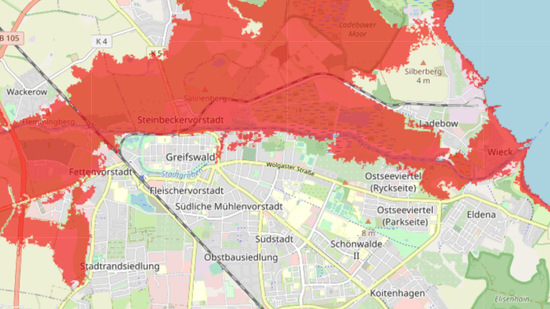German coastal towns are increasingly threatened by rising sea levels due to climate change. Even a popular university city is at risk.

(Source: Sebastian Peters via www.imago-images.de)
The climate change and its consequences are expected to have drastic effects on some German cities. Regions along the North and Baltic Seas could be particularly affected, especially as sea levels are projected to rise significantly.
The extent of the sea level rise in the coming years and decades depends on global warming. Experts have provided several forecasts for the year 2100. For instance, there are different scenarios for a 1.8°C or a 3.7°C rise in temperatures.
Additionally, according to Hamburg’s HafenCity University (HCU), the permafrost component could contribute to a faster temperature rise and thus accelerate glacier melting.
Greifswald: Severe consequences from climate change
Regardless of whether the temperature rises by 1.8°C or 3.7°C, HCU experts agree that the university city of Greifswald will face dramatic consequences from climate change. According to a model (see below), the northern part of this coastal town on the Baltic Sea could sink, and the former fishing village of Wieck would disappear. But it’s not just the coastal regions that are affected – a popular Baltic Sea island could also partially submerge.

The student city is also very popular among residents of Berlin. After all, it typically takes less than three hours to drive from the capital to Greifswald via highways 11 and 20. Thus, climate change could pose real problems for many Berliners as well.
Currently, this dire scenario is not yet felt. According to Baltic Sea expert Markus Meier, coastal protection measures need to be adapted. This would allow tourists to continue planning their vacations on the Baltic Sea with peace of mind in the coming years.








